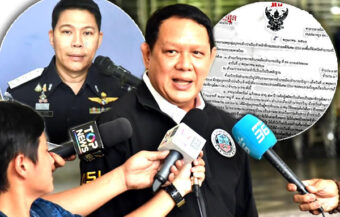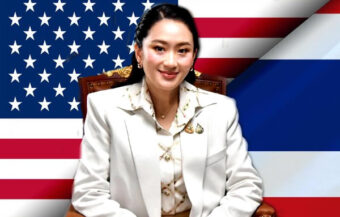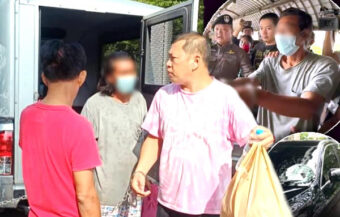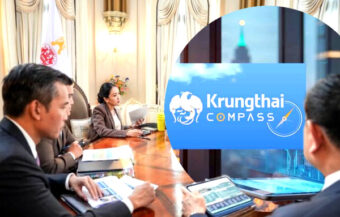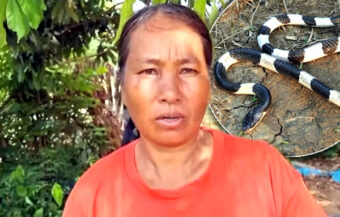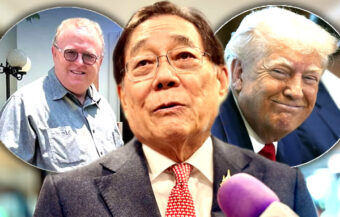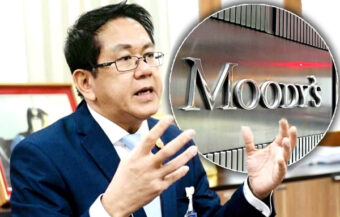14 amendments will be debated by the Thai parliament from June 22nd to 24th including a call by all parties involved in Wednesday’s meeting with House Speaker Chuan Leekpai to scrap Section 272, a return to the two ballot voting process with a strengthening of consumer rights and civil liberties under the constitution. A Bhumjaithai Party MP is calling for the state to become involved with a universal guaranteed minimum income provision to be enshrined in the constitution.
On Wednesday, three coalition government parties joined forces with the opposition in the House of Representatives seeking to amend Section 272 of the 2017 Constitution. This would remove the continuing power of the Senate to have a say in the election of the next prime minister, a critical factor in the outcome of the up and coming general election and which, as things currently stand, favours the reelection of the incumbent, General Prayut, as the next government leader after a General Election thought to be due in 2023.
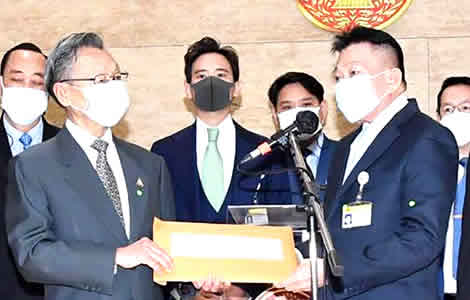
A host of opposition parties led by Pheu Thai and its leader Sompong Amornvivat joined forces with three coalition parties on Wednesday in presenting no less than 14 draft amendments seeking to alter the 2017 Constitution which will be brought before the House of Representatives when it resumes from June 22nd to 24th.
The coalition parties include the Bhumjaithai Party, Democrat Party and Chartthaipattana Party. The parties presented their measures to House Speaker Chuan Leekpai.
All the political parties who met the House Speaker on Wednesday to present amendments want to see Section 272 of the constitution scrapped
All the parties are unanimous in seeking to have Section 272 of the 2017 Constitution amended so that the existing power of the Senate, which extends until 2024, to have a say in the selection of the next prime minister is removed.
The controversial provision provides that for 5 years after the meeting of the first parliament under the 2017 charter, the Senate will join with the House of Representatives in the election of a prime minister and the formation of a government.
One measure seeks restoration of the two ballot voting mechanism in elections which would benefit larger parties and particularly Pheu Thai
Other changes being sought include a requirement that nominations for the position of prime minister can only be made by MPs or political parties as well as changes to the balloting system in elections reverting to the two ballot process which would see parties like Pheu Thai end up with a larger number of MPs in parliament by producing a more decisive election outcome.
There are also other initiatives seeking to amend the 20-year national strategy as well as moves to strengthen consumer rights and civil liberties within the framework of the constitution.
The drafts also seek to change the process through which the constitution can be amended and even pursue a whole new charter although this is a contentious area following a ruling in March from the Constitutional Court where judges unanimously signalled that a public referendum would be required in respect of major constitutional amendments and the use of Section 256.
Opposition wants to make it easier to amend, unpick or even replace the 2017 Constitution
Many opposition parties want to make it easier to change the 2017 Constitution which, as it is currently set out, makes any radical reform or efforts to replace it quite difficult for lawmakers to do without consulting with the people through a plebiscite.
On Wednesday, the government deputy chief whip, Democrat Party MP Chinnaworn Bunyakiat, highlighted the need to bring the 20-year national strategy up to new standards while Bhumjaithai Party list MP Somchai Jutikitdet raised the subject of a universal guaranteed minimum income and wanted to see the state’s role in this enshrined in the constitution.
Debate on the amendments schedule by House
The House Speaker, Mr Chuan, said that from June 22nd to 24th, the parliament would look at each measure and it is expected each party will have a speaker address the proposals as well as a Referendum Bill and other legislation.
Mr Chinaworn indicated that the House would address each amendment and a vote will be taken to admit them on the first reading.
Cooperation between parties to make this new election not simply a foregone conclusion
The significance of what appears to be some cooperation between key coalition parties in the government and the opposition on the matter of Section 272 which, if successfully removed from the current constitution, would open up a very different prospect in the aftermath of the 2023 election if the Senate’s 250 votes were not available to the current Prime Minister, Prayut Chan ocha, limiting the decision to the 500 members of the lower house.
As of now, the result of the next election is nearly a foregone conclusion.
The move, if successful, would significantly strengthen the prospects of the opposition in the formation of a new government.
It could, potentially, unseat General Prayut from the role he has held since May 2014.
Requires focus on a key goal, removal of Section 272
The problem, up to this week, for the opposition parties and those favouring constitutional reform has been finding common ground.
This would surely require focusing on a limited objective namely the removal of Section 272. So far, the government and its agents have successfully run down the clock on reform efforts without too much effort.
The slow progress at achieving constitutional reform to date, which has also already seen the matter brought before the Constitutional Court and may well do again, has been caused by confusion, lack of focus by its proponents and underestimating the strength of the current charter as it is formulated.
The charter aims to prevent willy nilly efforts to replace its provisions and undermine its direction which was to create stability in government with its provisions for extensive oversight of affairs by other agencies and constitutional institutions at the expense of parliament itself.
Join the Thai News forum, follow Thai Examiner on Facebook here
Receive all our stories as they come out on Telegram here
Follow Thai Examiner here
Further reading:
Future Forward Party dissolved – leadership banned from politics by Constitutional Court order
Parliament to debate PM’s oath-taking question which is also referred to the Constitutional Court
Thailand seeks less rancour as it counts down to its first election under the new Constitution
Radical new Thai constitution now in the hands of the Thai people who vote in August
Rejection of draft constitution means extended military rule




